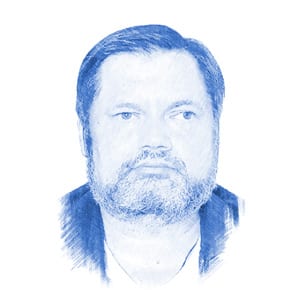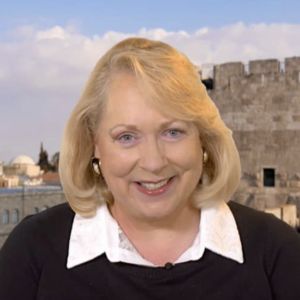A threat of Hezbollah`s rockets attacks against Israel from the Syrian territory under the Russian air defense umbrella seems to be diminished. However, Lebanon rapidly becomes a possible platform of the same scenario.
As for Syrian territory, Russia wants to keep the Hezbollah free zone (85 kilometers from the Golan Heights) as a play card in its diplomatic game against the United States. Russia prefers to control strategic points in Syria by deploying there not Hezbollah but “Qawat al-Nimr” and other Syrian army units which are loyal to Moscow. Russia is trying to decrease drugs smuggling across the Lebanese-Syrian border, which is a cause for Hezbollah’s discontent. Therefore, Moscow is interested in Hezbollah withdrawal from Syria to Lebanon. Hezbollah, for its part, considers itself to be cheated by sharing “war trophies”. It lost two thousand dead and six thousand wounded whereas financial support from Iran decreased.
At the same time, Vladimir Putin is extending its big game in Lebanon. A work on Russia`s soft involvement in Lebanon began long before the military operation in Syria. It is lobbied for by influential Lebanese politicians representing a wide spectrum of forces.
According to the director of communications at the Carnegie Middle East Center Mohanad Hage Ali, the main representative of Prime Minister Hariri in Moscow is his Russian affairs advisor George Sha’ban. Lebanese President Michel Aoun’s envoy in Moscow is Amal Abou Zeid, a millionaire and currently a parliamentarian from Aoun’s Change and Reform bloc.[1]
Sha’ban has represented the Hariri family’s company Saudi Oger in Russia for a long time and helped the Russian oil monopolies in entering the Saudi market. The company Stroytransgaz, belonging to Putin’s old friend oligarch Gennady Timchenko, created a consortium with Saudi Oger and undertakes construction of the water transport system for the southwestern provinces of KSA.[2] Putin appreciates Sha’ban so much that he rewarded him with the Order of Friendship in November 2018. As for Abou Zeid, his collaboration with the Soviet Union began as early as 1973[3], and his company ADICO came to the Russian market in 2000 specializing in the promotion of Russian oil corporations in South-East Asia[4]. As one of the most influential leaders of the Maronite community, Abu Zeid actively creates links between Lebanese Christians and the Russian Orthodox Church.
A very important lobbyist for Russian involvement in Lebanon is Jacques Jean Sarraf – the Chairman of the Lebanese-Russian Business Council, former Dean of the Lebanese Industrial Association, President of the Union of Mediterranean Confederation of Enterprises. His company Malia Group has been conducting business in Moscow for many years. Moreover, Sarraf , as the Vice-President of the Board of Trustees of the Orthodox Bechara University, organizes contacts between the Russian Orthodox Church and the large Orthodox community in Lebanon.
Another member of that community is the Defense Minister Jaqoub Sarraf. According to the Russian media, he actively supports the idea of a deal on the purchase of Russian weapons.[5]
Such a contract has so far been delayed by two main obstacles – counteraction from the USA, as well as the desire of Lebanon to receive military assistance free of charge, rather than being in debt to Russia.
But the situation began to change when the Russian company Novatek joined the consortium for Lebanese gas production. Then, not only Sarraf, but also President Michel Aoun and the Commander of the Armed Forces General Joseph Aoun became supporters of military cooperation with Russia[6].
Although Novatek invests relatively small sums in the project, it is important that this is a field where there is a territorial dispute between Israel and Lebanon (platform №9 in the Mediterranean Sea). It turns out that the Russian business therefore immediately entered into a confrontation with Israel. The Lebanese consequently hope that Putin will try to take the territory under his military control.
Among the Lebanese political actors who benefit from the arrival of Russia, it is necessary to name the Jumblatt family and, of course, Hezbollah.
Lebanon is also important for Russia as a Middle Eastern banking center.
There are several important points that Israel can take into account. First, in Syria, Russia is spending money while in Lebanon it wants to make money. Second, in Syria, Russia stands on Iran’s side against Sunni countries. In Lebanon, Russia wants to cooperate with Sunni countries. Third, in Syria, there are no sectarian groups which are related to Russia in a religious sense. In Lebanon, Moscow claims to be a defender of Christians.
Is Russian involvement in Lebanon dangerous for Israel? In current situation, yes, it is.
The reason is following: thanks to the operation in Syria, the Russian army has strengthened its position in the domestic political arena. For example, it should be noted that after the Il-20 incident, it was Russia’s Ministry of Defense that first assessed what had happened and accused Israel before the Kremlin or the Foreign Ministry made a statement about it. The decision to send to Syria S-300 air defense systems was also announced by the military. Just a few years ago, such independence of the defense ministry sector was impossible. The military lobby has also increased due to the emergence of private military companies (the most famous being Wagner). Russia’s major businesses, of course with Putin’s permission, have been actively using them for conducting undercover military operations in the Middle East and Africa.
As their ambitions grew, the military began to complain that they had to allow Israeli attacks on targets in Syria and generally take into account the “red lines” laid out by Israel. The demise of IL-20 could be used in the argument in their favor. Now even a proportion of the more moderate civilian experts supported the army’s view. For example, Chairman of the Presidium of the Council for Foreign and Defense Policy Fyodor Lukyanov declared: “It is important to convince the Israeli side that the rules of conduct are defined by Russia and no one else.”[7]
The situation became even worse in mid-November when Hamas fired rockets at Israeli territory. During these days, three topics prevailed in the Russian media. First, Russian air defense systems in Syria proved to be stronger than the Israeli “Iron Dome”.[8] Second, Israel lost military-technical superiority over its neighbors.[9] Third, allegedly, Russian the electronic warfare system Krasukha, located in Syria, was successfully used to create interference with the “Iron Dome”.[10]
What is important in this case is not whether these assertions are true, but rather the anti-Israeli tone of most publications. It is obvious that Russia has started a process of policy review regarding Israel – from the concept of “win-win” to the concept of a zero-sum game. In this context, the prospect of Lebanon’s inclusion in Moscow’s sphere of influence looks alarming. If this trend continues, the Israeli tactic of self-restraint against Iran, Syria, and Hezbollah will be interpreted by Moscow as a weakness, and any lack of self-restraint as a pretext for further escalation of the conflict.
Now it appears that President Aoun has asked Moscow to take Lebanon under its air defense umbrella, and the office of Prime Minister Hariri is sending contradictory messages – in the meantime, Russia is still thinking. It may be understandable as to why Putin is slow. First, he wants to receive from Lebanon a request in a form that gives Beirut no opportunity to take its words back. Such a request would mean a victory over the USA. Secondly, this hanging situation makes Russia a key player in the new political intrigue. However, an umbrella including Syria and Lebanon would give him even greater opportunities to conduct the situation near the northern border of Israel.
The West can offer Lebanon military assistance at more concessional financial terms than Russia. However Russia will not set political conditions concerning Iran and Hezbollah. Putin is more than likely convinced that his hand will be stronger, so he is not in a hurry.
This gives Israel a certain margin of time. But all the logic of the confrontation between Russia and the West, as well as the trends in the Russian-Israeli relations, increases possibility that an “umbrella” over Lebanon will be created.
[1] Mohanad Ali. Our Comrades in Beirut. https://carnegie-mec.org/diwan/76164
[2] Russia-Saudi Arabia Relations: Facts & Details. Sputnik News Agency, Oct. 05, 2017. https://sputniknews.com/world/201710051057986313-russia-saudi-arabia-relations-factbox/
[3] Sanaa Nehme, Amal Abou Zeid, My Lebanon, Moscow, Nov.15, 2017. https://mylebanon.ru/amal-abou-zeid/
[4] Reda Sawaya, Crossing the border between politics and economy, Al-Akhbar, Apr. 22, 2015. https://translate.google.ru/translate?hl=ru&sl=ar&tl=en&u=https%3A%2F%2Fal-akhbar.com%2FFinance_Markets%2F19552&sandbox=1
[5] Irina Selezneva. Glava Minoborony Livana Obsudit s Shoigu Vosobnovlenie Sdelok po Oruzhiyu, {Russian}, Federal News Agency, Moscow, Aug. 23, 2017.https://riafan.ru/931476-glava-minoborony-livana-obsudit-s-shoigu-vozobnovlenie-sdelok-po-oruzhiyu
[6] Alexander Kuznetsov. O Vozmozhnom Voyennom Sotrudnichestve Mezhdu Rossiey I Livanom, {Russian},The Institute of the Middle East, Moscow, Apr.13, 2018. https://www.iimes.ru/?p=43503
[7] Postavka S-300 Sirii, {Russian}, Interfax Agency, Moscow, Sept. 24, 2018. https://www.interfax.ru/russia/630464
[8] See for example: Alexander Sitnikov, Fiasko Zheleznogo Kupola, {Russian}, Oko Planety, Nov.16, 2018. https://tcf.org/content/commentary/lebanon-embracing-larger-russian-role-country/?session=1&agreed=1
[9] See for example: Izrail Teriayet Svoyo Tekhnicheskoye Prevoskhodstvo nad Sosedyami, {Russian}, Regnum Information Agency, Nov.22, 2018. https://regnum.ru/news/2524475.html
[10] See for example: Rossiyskaya Krasuha Vyvela iz Stroya Zheleznyy Kupol. Avia Pro Web Site, {Russian}, Moscow, Nov. 16, 2018. https://avia.pro/news/rossiyskaya-krasuha-vyvela-iz-stroya-zheleznyy-kupol-i-unichtozhila-oboronu-izrailya





